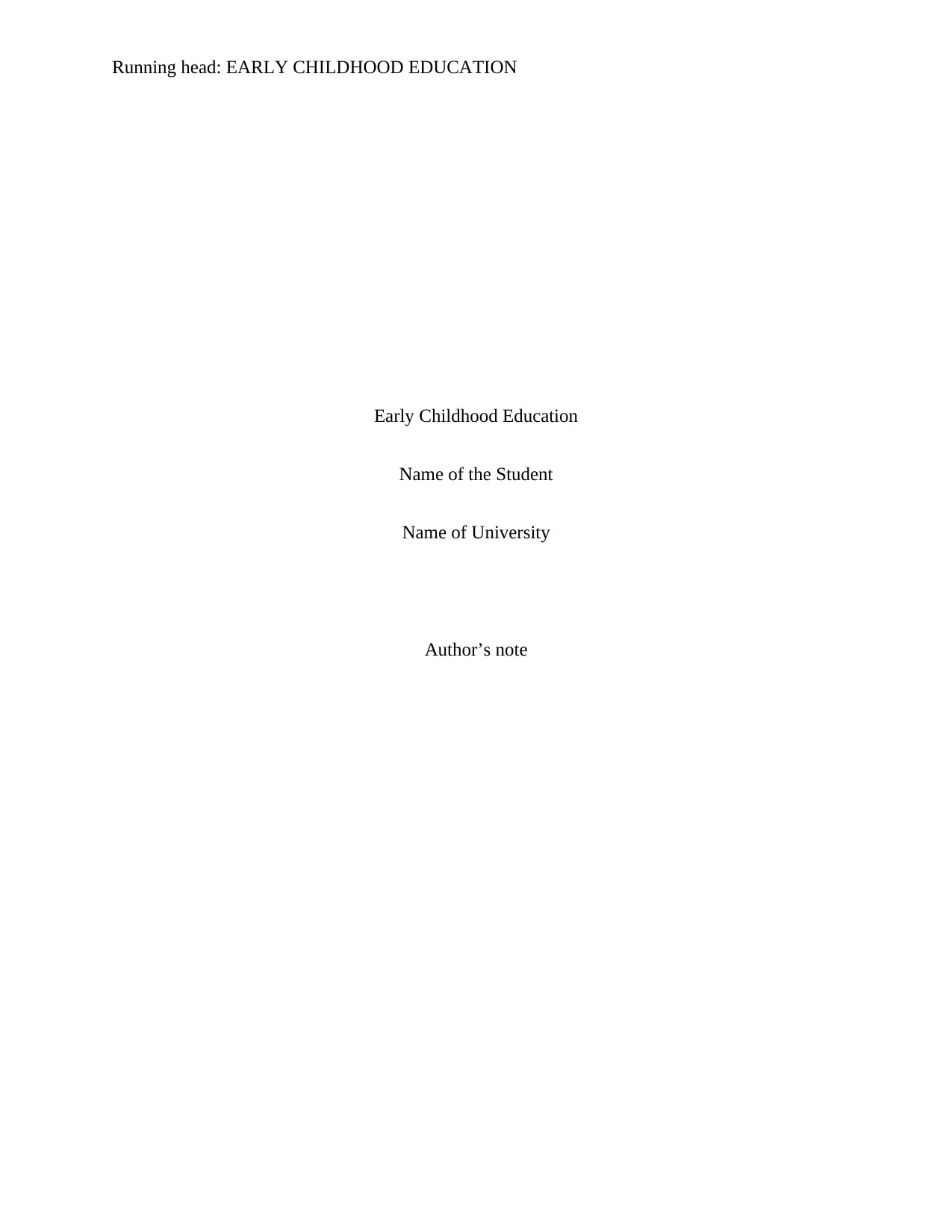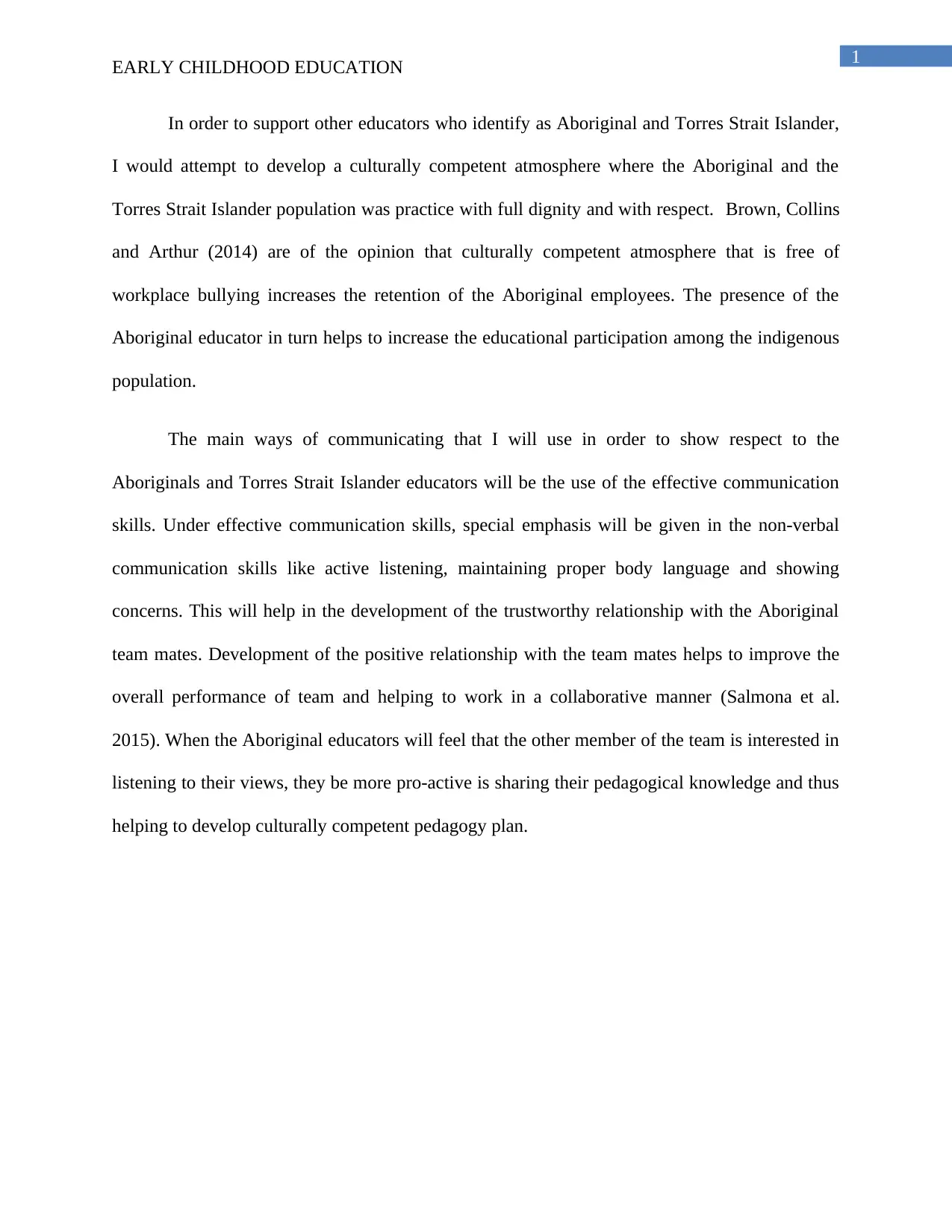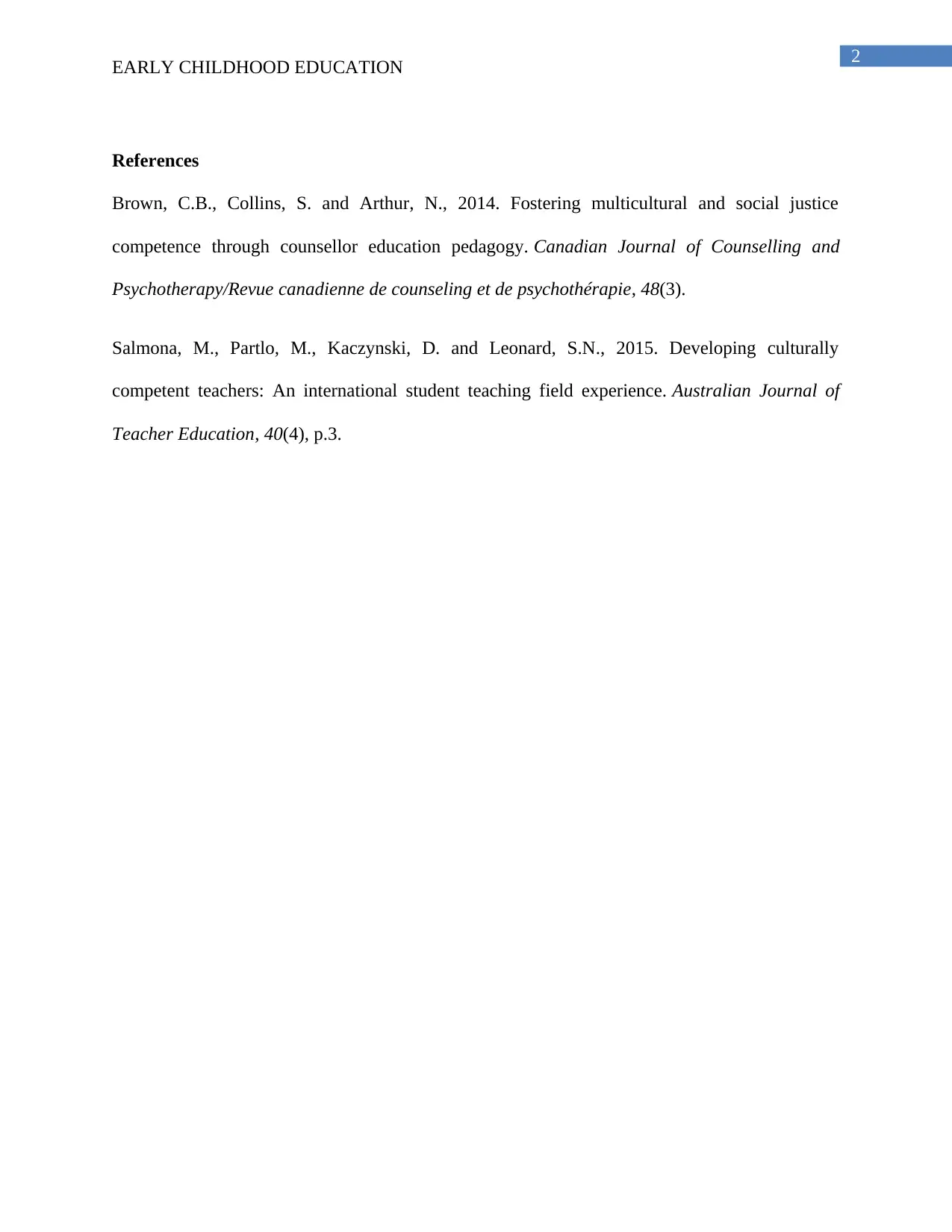Early Childhood Education: Culturally Competent Atmosphere Report
VerifiedAdded on 2022/10/15
|3
|351
|22
Report
AI Summary
This report focuses on the importance of creating a culturally competent environment in early childhood education, specifically addressing the needs of Aboriginal and Torres Strait Islander educators. The author emphasizes the significance of respectful communication, including active listening and appropriate body language, to build trust and foster collaboration among team members. The report highlights the role of Aboriginal educators in increasing educational participation within the indigenous population and suggests that a supportive atmosphere free from workplace bullying is crucial for their retention. The author also discusses how effective communication can facilitate the sharing of pedagogical knowledge, leading to the development of culturally competent teaching plans. The references provided support the arguments for creating a culturally competent atmosphere.
1 out of 3










![[object Object]](/_next/static/media/star-bottom.7253800d.svg)